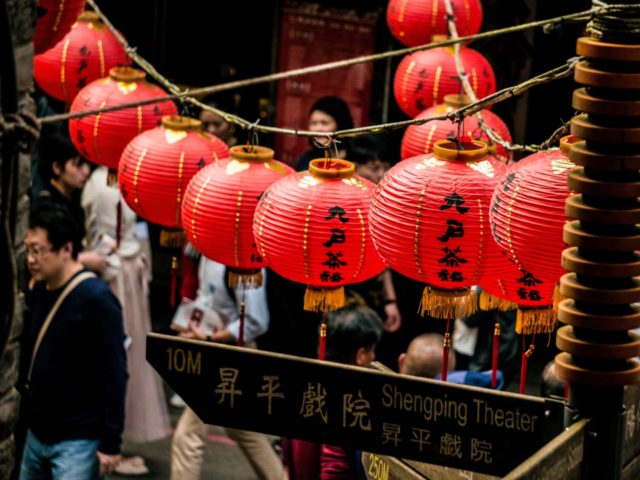Mainland China suspended its visa program for tourist visits to Taiwan on Thursday, ostensibly because relations across the Taiwan Strait have deteriorated. Taiwanese President Tsai Ing-wen denounced the move as an effort to apply economic pressure against the island ahead of its presidential election in January.
The visas suspended were from tourists traveling alone out of 47 mainland cities, halting a highly profitable program implemented in 2011. Business travelers and tour groups are still permitted to travel to Taiwan under the new restrictions.
The Chinese did not put much effort into pretending the suspension was anything more than brute-force interference in Taiwanese politics. The state-run Global Times editorialized that blockading a good 28 percent of Taiwan’s tourist industry is a fitting punishment for President Tsai’s sins against China’s “one country, two systems” doctrine (the policy in place in Hong Kong, but not Taiwan):
The suspension on individual travel is an economic card played by Beijing to give a warning to Taipei. The mainland is an important source of tourists for Taiwan, with more than 1.6 million mainland visitors reportedly arriving in the island in the first half of the year, up 28 percent from a year earlier, according to the data from the transportation and communications authority of Taiwan. Suspending tourist travel permits to Taiwan will deal a blow to the already weak economy in the island.
The ban sends a clear signal to Tsai. Due to her hard-line stance against the Chinese mainland, Beijing won’t continue encouraging Taipei to enjoy the economic driving force from the mainland by promoting cross-Straits economic cooperation and interaction.
Taiwan’s heavy dependence on the mainland economy gives Beijing plenty of economic options in cracking down on Taiwan secessionist forces. Suspending tourist travel permits is just one of those options.
This was followed by the sort of ominous physical threat Beijing is growing increasingly comfortable with:
Many are trying to guess what economic card Beijing will play next. However, this may not be the most important question. Considering the recent military exercises of the People’s Liberation Army, Beijing is not just thinking about playing simple economic cards to crack down on Taiwan secessionist forces.
The US in early July approved possible arms sales to Taiwan with an estimated value of $2.2 billion. We advise the US not to meddle in China’s internal affairs at this sensitive moment. Beijing has a complete set of strategies regarding the Taiwan question, and the ban on individual travel is just a small part of the story. Can Taiwan and the US guess what happens next?
The New York Times speculated Beijing is hitting Taiwan especially hard because the Taiwanese have strongly supported protesters in Hong Kong. As their recent defense white paper made clear, the Chinese Communists are growing more paranoid about “separatist” movements reinforcing each other and touching off widespread dissent across the mainland.
To thwart such ideological contagion, they have become more aggressive about challenging the patriotism of protesters, accusing dissenters of secretly harboring separatist fantasies, and portraying all dissident movements as puppets of hostile Western powers.
The Times quoted former Hong Kong chief executive Tung Chee-hwa making the Chinese Communist case very concisely in a speech to a pro-China think tank on Wednesday: “Looking at the [Hong Kong] political storm closely — its severity, scale, and organization — it’s reasonable to believe that it’s fanned by someone. Various signs are pointing at Taiwan and the U.S.”
Taiwanese President Tsai Ing-wen rebuked China for suspending its visa program on Thursday. “Using tourists as political tools would only create antipathy in Taiwanese people,” she predicted.
“Saying this is a mistake, I think that history will demonstrate who was on the correct side and who made a mistake,” retorted Chinese Foreign Ministry spokeswoman Hua Chunying.
Ma Xiaoguang, a spokesman for China’s Taiwan Affairs Office, bluntly informed the Taiwanese they can have their mainland tourist trade back if they vote the right way in January.
“The Democratic Progressive Party is continually pushing activities to promote Taiwan’s independence and inciting hostility toward the mainland, seriously undermining the conditions for mainland travelers to visit the island,” Ma charged.
“I believe compatriots on both sides of the strait hope relations will return to a correct track of peaceful development, allowing travel by mainland residents to Taiwan to return to normal as soon as possible,” he said.
The New York Times impishly suggested Beijing might also be clamping down on tourist visas because the Communist Party is worried mainland tourists exposed to Taiwan’s vibrant democracy and energetic support for Hong Kong might come home with dangerous ideas about pushing for freedom and human rights all across China.
China is further attempting to intimidate Taiwan with military drills this week, a move Tsai denounced as “targeting all Taiwanese people and impacting peace, stability, and safety in the region.”
The Taiwanese showed their defiance by holding a live-fire drill of their own and launching 117 missiles, some of them traveling over 150 miles before splashing down. The Taiwanese cooked off just about every form of missile in their inventory, from anti-aircraft rockets to ship-killers, and threw in a simulated F-16 fighter jet attack on a “high-value maritime target” for good measure.

COMMENTS
Please let us know if you're having issues with commenting.